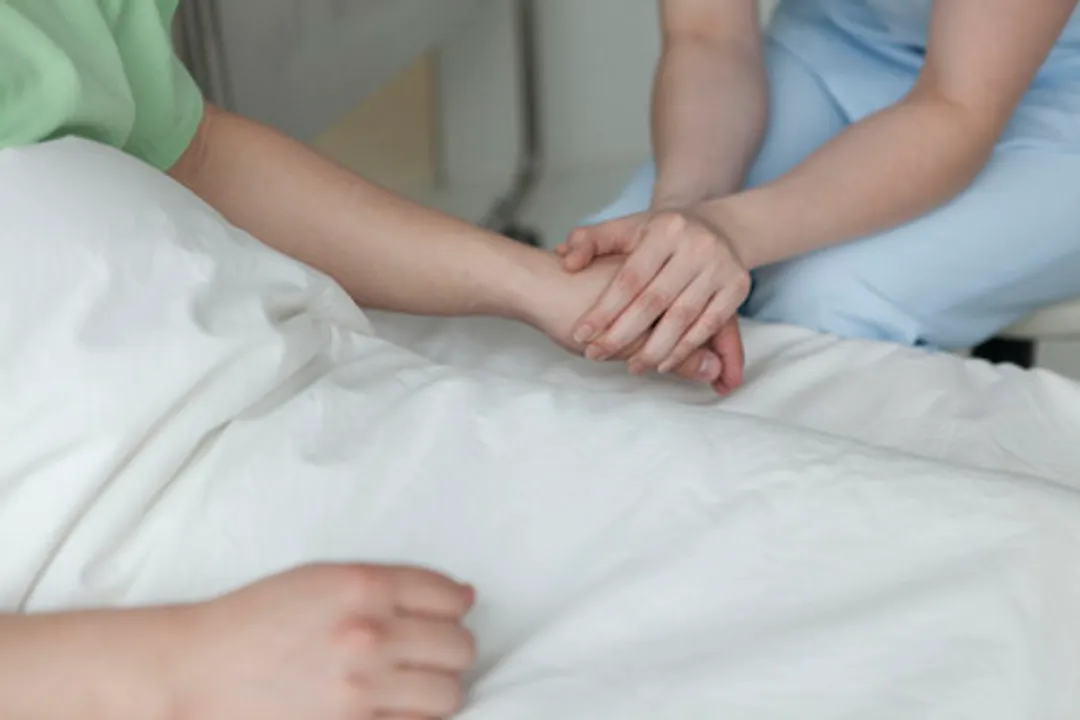Why I am a Psychiatric Nurse

sheeler/123RF.com
The first time I tried to kill myself, I was 12. Twenty-three Benadryl just made me very sleepy. That is, until I had my stomach pumped. The second time I didn’t actually take the pills, but instead I held them in my hand for a very long time, rubbing my thumb across the dozens of smooth capsules in my palm. I was 35 and pregnant, in a bad marriage, and weighted down with a depression that decimated me. Getting out of bed took every ounce of strength I had, and the medications I took faithfully just made me a depressed zombie. I barely missed being hit by a train one morning as, drugged and numb, I crossed train tracks just seconds before the oncoming train swept through. Its screeching brakes and horn echoed in my ears as I drove away, shaken.
Five years later, my then 12-year-old daughter took 80 Prozac, and she had her first inpatient psychiatric stay. She inherited my gray-blue eyes, my love of reading, and my genetic predisposition to crippling depression and anxiety. The scars that mark the landscape of her skin testify to her pain. It is not an easy road, and I suspect she will face these demons much of her life.
I knew from the beginning of my nursing career that psychiatric nursing was going to be my passion. As a nurse in an acute psychiatric facility, I could empathize with the embarrassment, frustration, and even self-loathing that often accompany mental illness. My patients come to us at their worst – depressed or psychotic, addicted or anxious. Some of my patients have truly given up on ever feeling better and are looking for a way – any way out of their pain. Others come because they are experiencing a psychotic break for the first time or are finally ready to break their addiction. I have the privilege of taking care of patients who feel as though they have nowhere else to go and are broken spiritually, mentally and emotionally.
My job is rarely boring and is, on occasion, dangerous. Our career choice demands a great deal of training in self-defense and de-escalation tactics. It can be absolutely emotionally and mentally draining; we are dealing with some of the most difficult and complex personalities that most people can't deal with. It is exhausting and rewarding and frustrating and heartbreaking all at once.
Not only do we manage acute and chronic medical conditions and wound care, psychiatric nurses are also trained in behavioral therapy, which allows us to teach patients (and their loved ones) how to deal with challenges that go along with psychiatric disorders. We must be able to provide fast and efficient nursing care and be skilled in crisis intervention and treatment.
Psychiatric nurses work with patients who have a wide variety of disorders, including:
- Anxiety, such as panic disorder or phobia
- Mood disorders, such as depression or bipolar disorder
- Psychotic disorders, including schizophrenia
- Substance abuse and addiction
- Alzheimer’s disease and other dementias
I admit it, we have our doozies. The naked ninja who was looking for her cat was actually a retired nurse who had a horrible reaction to her sleeping medication. Then there was the lady who screamed every time a toilet flushed because she thought there were puppies in there. And the man who struggled to understand that his bright, articulate son was suddenly severely incapacitated after smoking spice. The woman who spoke in a robot voice, and the man who needed 127 stitches to put his wrists back together again are all my patients. They all wind up here, one by one, and they desperately seek the treatment they need to regain their lives back. Some I will never see again, and others I’ll see relatively soon. Some, I won’t see until I come across their names in the obituary column.
The best part of my job is when I get to make a positive impact people and help them get their lives back on track, even if it is just to their baselines. I do the work I do because, if only for a few hours or a few days, we give our patients hope. Hope that the depression won’t win the battle, hope that tomorrow is a new day, and most importantly, that there is still the potential for great and wonderful things to happen, even if they don’t see it yet.
Related Posts
